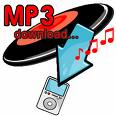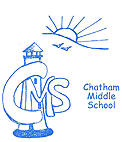Topic outline
General

This lesson is a course written by Ann Morgan. The content and photographs are licensed under a Creative Commons Attribution-ShareAlike 2.5 License . That means that you can use it, improve it and share it.This unit of study was designed for middle school students. It uses both the Audio Recorder and Podcast modules. It can be adapted for use in lots of ways for students at all grade levels. The end topics still need some content ... perhaps if you add onto this unit you too will share your improvements with me? Have fun!
 PODCASTING
PODCASTING What is a Podcast?
Podcasts are Internet based programs much like shows on traditional radio or television. The name podcasts uses the ubiquitious iPod from Apple which has come to symbolize this digital revolution. It also uses cast from broadcast.
It is important to note that podcasting does not require the use of an iPod or any other mp3 player. Anyone with a computer and Internet connection can listen to and create podcasts.
Podcasts are digital audio and/audio-video files on the Internet. These files can be downloaded from an Internet connection anywhere in the world. Because they are digital, they offer listeners much more flexibility than tradional radio.
Podcasts can be dowloaded to a portable audio device like a mp3 player or smart phone. They can be cataloged and played over and over, whenever the listener wants to listen.
There are thousands of free podcasts to explore. Just about anyone can create a podcast and make their voice heard across the Internet.
In this Moodle environment you will explore examples of podcasts. You will learn how to script, record, and edit your voice. Later you will produce a podcast combining segments from fellow students.
Your podcast project might:
- communicate research findings
- debate an issue
- share poetry or creative writing
- review literature
- apply topics and concepts to the real worls
- communicate in foreign languages
Topic 1
 Listen to Podcasts
Listen to Podcasts Check out Expressions from the Middle podcasts produced by students like you. Use the forum below to discuss these students' work.
Next, search for some podcasts using iTunes Podcast directory or any other podcast directory.
Share one of your favorite podcasts by providing the name, and link. Explain what the podcast is about and why you enjoy it enough to rank it number 1.
- Student Podcast Examples
Thinking about these student podcasts ....
Use the forum below to share your thoughts.

Podcast DirectoriesSearch for podcasts that interest you! Do you love soccer, movies, cooking, fashion, comedy, biking, travel? There is apodcast for just about everything! Some are really good, others are horrible! Below are some podcast directories, but there are many more that you can find on the Internet.
Please be aware that there is explict media available ... which is the same for YouTube and many other applications. It is expected that you will use these resources appropriately!
Are you reading To Kill A Mocking Bird? Here's a podcast that a teacher created for his students.
Shakespeare Anyone? Listen
Want to learn more about how to use your iPod? Here's a podcast.
Need some help with understanding fractions? Listen to this.
Love science? Check this out. Here's another one.
Studying about the Civil War? Listen to this.
Use the directories below and do a search! Favorite Finds!
Favorite Finds!Share a podcast that you discovered and enjoyed. Who else might like this and why? Use the forum below to share. Be sure to copy the URL belfore you start the Forum below. Obviously your choice needs to be appropriate!
Questions?
Topic 2
 Let's Talk!
Let's Talk! 
Think about this scenario: You are creating a podcast about memories you will take with you as you move on to the next grade. This will be part of a school podcast project. You want to use a song, "I Will Remember You" by Sarah McLachlan - it will make a wonderful background. You own the CD and the whole track fits perfectly so you put the whole thing behind your voice narration.
In the Forum below, discuss with your classmates whether this is Fair Use.
Please follow the discussion rules as discussed in class and are located on the resource link below. Feel free to enter your opinion and reply to others' as often as you wish. let's have a lively discusion!

Required Reading
Assignment
Topic 3
Code of Ethics
As a podcaster you have some basic rights and responsibilities. We will spend some time discussing journalism and ethics.
After our class forum discussions you will generate (produce) a Podcater's Code of Ethics document.
Here is what you will need to consider before creating your document:
- Responsibility to truth and accuracy
- Separating Fact from Opinion
- Balancing Points of View
- Citing Sources and Giving Credit
- Plagiarism
- Sensitivity
- Responsibility to self, class, and school community
You will need to participate in each of the below activities to receive credit. You will be graded according to this standard:
- 100 means you responded thoughtfully to the prompt and answered all the parts.
- 80 means you responded thoughtfully, but missed some parts.
- 70 means some of your responses lacked thoughtfulness and/or you missed parts
- 50 means that you responded poorly on all parts
- 0 means you never participated
Required Forums!
Please be sure you participate in each forum below. The quality of your response will be evaluated as stated above.
Upload A Podcaster's Code of Ethics Poster Assignment
Are you ready to demonstrate what you learned about a podcaster's responsibility to his/her listening audience?
Create a MS Word, or MS Publisher document (poster) that will remind podcasters about their responsiblities. Refer back to the forums ... do some Internet searches of your own if you wish. Think of the DESIGN ELEMENTS and make your poster interesting and clear. Be creative. Title your poster A Podcaster's Code of Ethics.
When you have finished, print out your poster in COLOR and upload your assignment to the Moodle. Be sure your name is part of the file name as well as on the poster.
Upload Your Poster
Questions?
Topic 4
 What Makes a Good Podcast?
What Makes a Good Podcast?Authenticity
Your podcast should NOT be merely an example of performers reading a script. This will sound superficial and will not reflect what you think and feel. Your listerners need to know that YOU care about the topic and You are expressing YOUR thoughts and ideas ... not someone elses!
Compelling Stories
Just telling a story is not just a nice thing to know so your listerners will be entertained. Storytelling helps us look at ideas we have gathered and give them context - to reconstruct them in a way that will be easy to grasp and will take your audience where you want to take them. Your narrative should help clarify issues and inspires your listerners to learn more.
Connecting to Your Audience
Great podcasts are not about you! They should be about all of us. Even when the topics are localized, effective podcasters make efforts to reach out to the listener and pull them into the conversation. Too often podcasters produce content which lacks any sense of connection to the listener. It is as if they are reading to a microphone and nothing more.
Keep your audience needs and interests in mind when you plan your show. Audiences who can see themselves in the discussion will tune in again. Ask them questions and pull on their experiences by refering to your own.
Your connection to the audience is EXTREMELY IMPORTANT. You should include statements about the impact you hope to have on them. Is their an action you want your listerners to take after listening to you?
Seeking the Unique
Is your podcast predictable with obvious conclusions? Will your podcast get lost in the shuffle of all the ones your peers produced? Capitalize on your special talents, knowledge of a topic, and perspective. Do something to make your audience rember your podcast!
Choices Choices!
After you have read the above it is time to make a choice! Which one do you believe to be the MOST IMPORTANT element of a GREAT podcast?
Re-read the above before you participate in the Choice Acivity below.
Questions?
Topic 5
 Scripting a Podcast
Scripting a Podcast You will be required to script out and upload a MS Word document with your podcast intentions.
Your script should represent:
- Accurate and truthful depictions of the subject matter
- Appropriate and productive content
- Expressive engaging language and tone
- Values and ideals consistent with our school's mission
- Your best work
You will need to self monitor your work. If you are working in a group you should be sure to assign:
-
Fact Checkers
-
Last Chance Group listeners.
Each member of the podcast group needs to create a DETAILED podscript ... sort of a storyboard of the segment you have been assigned. You can cut/paste the scripts together and submit one word document. However, I will need to see evidence that there were no hitch-hikers in this process.
Tips:
-
Identify yourself and the podcast right away (only first names please)
-
Grab the listeners attention in your introduction
-
Follow copyright laws. Be sure you have permission to use any music or sound files you include.
-
Remember who your target audience is and the purpose of your podcast.
-
Include a clever conclusion
-
Slogans help make your podcast memorable. Look at Sloaganizer!
-
Don't forget to encourage your listeners to leave you a comment.
Selecting a Format
Here are a few ideas as you consider the type of format you want your podcast to be.
The Journal Format
The journal format is a more personal style of podcasting that is sometimes referred to as an audio blog. The journal is a reflection space where you can share current events, challenging ideas, or just talk about your interests and perspectives. This format is very conversational even though the conversation is essentially one-way. The purpose is to share with your audience your point of view. Audio journals can be stand alone podcasts, or can be a segment within another podcast.
An Audio Essay Format
The audio essay is a mix of research and reflection on personal experiences. Stories are told in the first person, but often mix in recorded interviews to move the story along and set the ideas within a larger context. Audio essays can vary in length. One example of this format is This American Life. I Believe in Making My Father Proud, Saying Thanks to My Ghosts
Everyone has a story to tell, so think of your own and share it with your audience.
A Discussion Forum
Every Sunday morning the airwaves are full of television shows which feature round-table or panel discussions of current events and politics. An issue. event, or community issue is laid out and then each member of the panel shares their personal or expert perspective on it. Discussion formats bring out greater sense of depth because they show the listener multiple points of view. Think of the listening audience as panel members and ask for their input through e-mail, or on-line polling.
Sound Seeing Tour
Podcasts use detailed descriptions and sounds to create imagery. The "sound seeing tour" is an audio version of a travelogue that introduces the listener to a new place. Sometimes the places are famous or historical sites, and other times they are everyday places that are interesting because of personal experiences or connection that the podcaster can share as they record their tour. Check out some samples of this format.
A Variety Show
This format is flexible by design. Do you know someone who loves to tell jokes and stories that make people laugh? How about an original skit that can be acted out? You can play original student music from a local band, have interviews, book, movie, music or podcast reviews, as well as commentary and discussions.
Still can't think of what to do? Here are a few more ideas to ponder...
Poetry Journal
Use the podcast to read and interpret poetry you have written or was inspired by.
Can I Convince you?
Take the persuasive essay form directly to an audience with the added punch of your own expressive speech. Consider coupling two or three points of view on a single topic together to create a podcast about points of view.
Book Talk
Share what you have learned and thought about a book.
Word of the Day
The podcast can introduce a new word and teach the listener how to spell it. In addition, the podcast can explain its definition and origin and help listeners to use the new word in conversation. Don't be boring if you choose this ... there is lots of room for creativity with this.
Commercials
Produce a 30 second commercial for an imaginary product of your choosing. The podcast can feature narration and dialogue that describes the product and tries to convince the listener to buy it. You could also create a Public Service Announcement.
Commercial Debunker
It has been said that almost every commercial has some sort of distortion, inaccuracy or exaggeration buried within it. This podcast segment would share the actual commercial and ten a discussion would follow pointing out the inaccuracies.
This Day In History
Every day carries with it the significance of thousands of years of history. There are lots of resources on the web. Not only should you share the event, but tell of its significance and reflect on its meaning to you.
Let's Talk Leadership
Create a podcast devoted to the exploration of leadership. Offer profiles of great leaders and how their personal skills helped them meet the challenges before them. You could explore the qualities of effective leaders and interview your classmates for their ideas.
Pet Talk
Dogs and cats and fish! Oh My! Focus your podcast on a pet. Make connections with pet stores, animal trainers, veterinarians, animal control officers, kennel clubs and biologists to provide expert advice.
Math Word Problem of the Day
Try giving this an interesting twist by setting it within a podcast. Instead of just reading a problem and sharing the solution, make the focus about the process. Break the problem down and explain your thought processes as you attempt to solve the problem. Maybe you'll do it incorrectly and share how you figured out it was not correct. Then attempt it another way. For an even more creative twist, combine this activity to create a radio drama that presents the problem.
Great Moments in Math
This podcast could focus on great mathematical thinkers and their achievements throughout history. These audio portraits will help to re-fame mathematics as a unique endeavor affecting us all. Great moments podcasts can include: a brief biographical segment, a look at their most notable achievements; their BIG IDEAS, an example of how their work was applied, and a challenge to listeners to look for their influence.
Math Makes the World Go Round -How Much is Your Allowance?
This podcast would reveal how mathematics affect our lives. The host could explain the basis for the concept then begin applying everyday situations. You could conduct a poll to get the average student allowance. How much money is that for the number of students polled? How would you get the answer? What would happen if ...
The People Speak
Consider developing a segment or a show using opinion polling and data collection to talk about these issues. You could offer interviews, discuss opinion polls to gain experience and perspective on issues of concern.
My Job is...
This podcast would make connections with people who have jobs that interest you. Do a job shadow ... You could use interviews as well.
Stop. Think. What Would You Do?
You can build an interesting and productive podcast segment or stand alone segment that presents a scenario involving a difficult problem or ethical dilemma. Then ask your listeners to come to a decision about what they would do and why. You could include "person on the street" interviews where people share what they would do in a particular situation.
Review Shows
Share a review and develop advice for your audience. Be sure to establish a logical and fair rating system. Think back to the Code of Ethics poster you created earlier. You could rate restaurants, music, movies, books, video games, food or other products. These reviews are subjective and will reflect your personal interests and perspectives. There is not an absolute truth when it comes to most reviews. Audiences find reviewers who share their point of view and provide in depth and practical reviews. Of course the truest test of a review is to follow the advice of the reviewer and to see if your own conclusions match theirs.
Liars Club
Put on your best poker face and try to pull a fast one on your listeners while you test their ability to distinguish fact from fiction. This is a quiz show where you use persuasive tactics to convince your listeners that you are telling the truth. Your listeners should be instructed as to what you are doing and why. It might work like this ... Ask a question and give 2- 3 answers. However, only one answer will be correct. Try not to let your tone of voice give the answer away. Make you listeners hunt for the answer. The winning answer along with the deductive strategies would be featured at the end of the show.
If you STILL don't know what to do ... see you teacher!
Share Your Format Decision
After you have made a decision about the format you will use, share it with your teacher by using the Choice activity below.
How Am I doing So Far?
Pass in your script for comments and grades. Do not begin the next topic until you have either talked to your teacher, or have received a grade for your script.
What Do You Need?
Questions?
Topic 6
 Recording Your Voice
Recording Your Voice The quality of your voice is as important as what you say! Be sure that your voice is conversational and authentic. The writing and delivery will create an atmosphere that adds credibility and engagement with the content of your finished podcast.
Your audio should be free of distracting ambient noises, static, and plosive sounds. Your voice should be clear and maintain a constant strong volume level. Pronunciation and diction are clear. Above all the tone is conversational. DO NOT READ YOUR SCRIPT WORD BY WORD!
Remember, you can record your script as many times as you wish. Delete the ones that don't meet your high standards and re-record. After multiple practices the flow of your words and tone will improve.
Watch the video below to learn how to use the Audio Recorder
within Moodle.Direct Links to Audio Recorder Help Videos:
Video Audio Recorder Part 1 Video Audio Recorder Part 2 Video Audio Recorder Part 3
It's Time to Record!
Be sure you have a microphone headset that works! Get organized. Inform the people around you that you are recording so they respect your need for quiet. Read aloud your script several times until you know it well. You can change the words as you go if it makes better sense to you. Make it natural!
Speaking Do's and Don'ts
While in front of a microphone, there are some important basics of speaking to remember.Do ....
- Enunciate clearly
- Speak at a normal volume
- Practice, practice, practice!
- Reduce background noices
- Pause recording to take short breaks
- Smile when speaking!
Don't ...
-
Talk too quickly
-
Drop off the ends of words
-
Try to sound like a D.J.
-
Pop p's into the microphone
-
Get too close to the microphone
-
Touch the microphone or its cord
Ready? Try it!
You can use this to test out your hardware as well as the process. Later you can imort your audio into Audacity so you can edit and enhance it.
Questions?
Topic 7
 Editing Your Audio
Editing Your Audio There are times when you will want to edit your sound recording, or you'll want to combine segments and add music.
One of the easiest programs to use is Audacity. It's a free download and it is what we have on our student lab computers.
Here's a video from Teacher Tube
There are lots of Audacity tutorials to explore. Check out some of the links below for some tutorials.
UPLOAD YOUR WORK!
After you have learned how to use the Audacity program and have edited your previous recording, use the recorder activity to locate and upload your final audio segment. Be sure you save your audio with your name. Check back later to see the grade and comments.
- Your new IMPROVED FINAL audio
What is it About? Describe your Podcast.
Write a few sentences about your podcast. Tell what the listener can expect. This is what the viewers will see before they click on the audio. I will copy/paste your description into the podcast.
Questions?
Topic 8
 Enhancing Your Audio with Music
Enhancing Your Audio with MusicThere are times that you might wish to enhance your audio with music. Podsafe audio can be legally used in a podcast and freely distributed online for others to download. There's actually so much podsafe music online that you can spend hours sifting through it. Spend all the time you want ... AT HOME ... in class you will only have a limited amount of time. There are just a few rules that you should be aware of.
According to Copyright and Fair Use Laws you may not use music tracks that you are copying from a CD (even if you own it) You must use Royalty Free Music.
You will find this type of music on the docserver amorgan/Hand-out/Royalty Free Music. You can also locate Podsafe music. Podsafe music is a term used to describe a recording (usually musical) that is not governed by copyright restrictions.
The Podsafe Music Network (www.music.podshow.com) actively recruit musical recordings artists who want their music shared through podcasting. Naturally, where ever you get music tracks, you should ALWAYS at the end of your podcast show tell your audience where you got the music and who the artist is.
You can also mix and create your own music using Audacity.
Questions?
Topic 9

Enhancing Your
Audio with Images
Questions?
- This topic
Topic 10
If you are using the program Audacity you will need to export your audio as an MP3. Watch this video.
Questions?
Topic 12
 Leave a Comment
Leave a Comment
About the PodcastsStudents worked hard to produce audio recordings and converted them into class podcasts.
Please listen to all of the podcasts. Think about what really worked in some podcasts and didn't in others. Try to remember what was effective the next time you are asked to create audio.
After your listening is complete. Please leave at least one comment (positive of course) for each podcast. Tell the producers of the podcast what impressed you and what you learned from their presentation.

 Podcasts from the Middle School
Podcasts from the Middle School